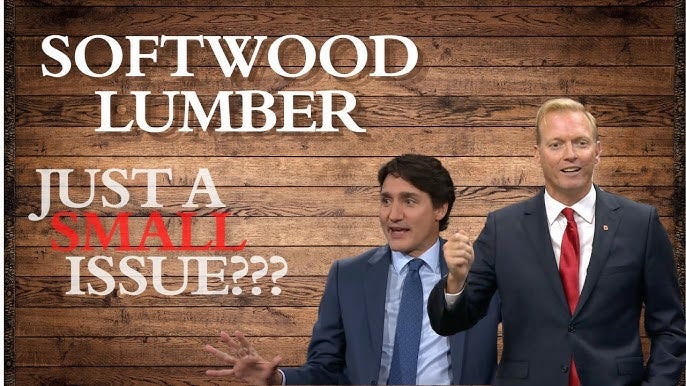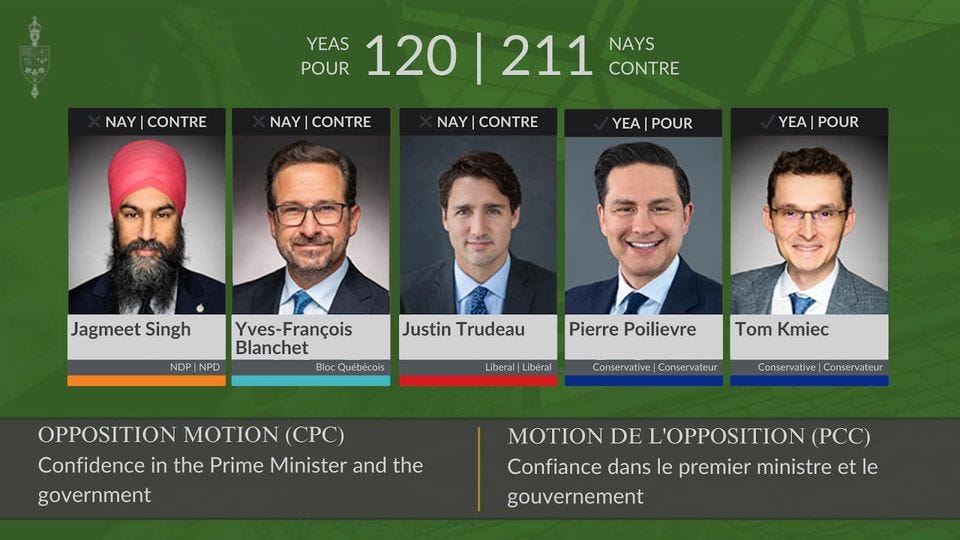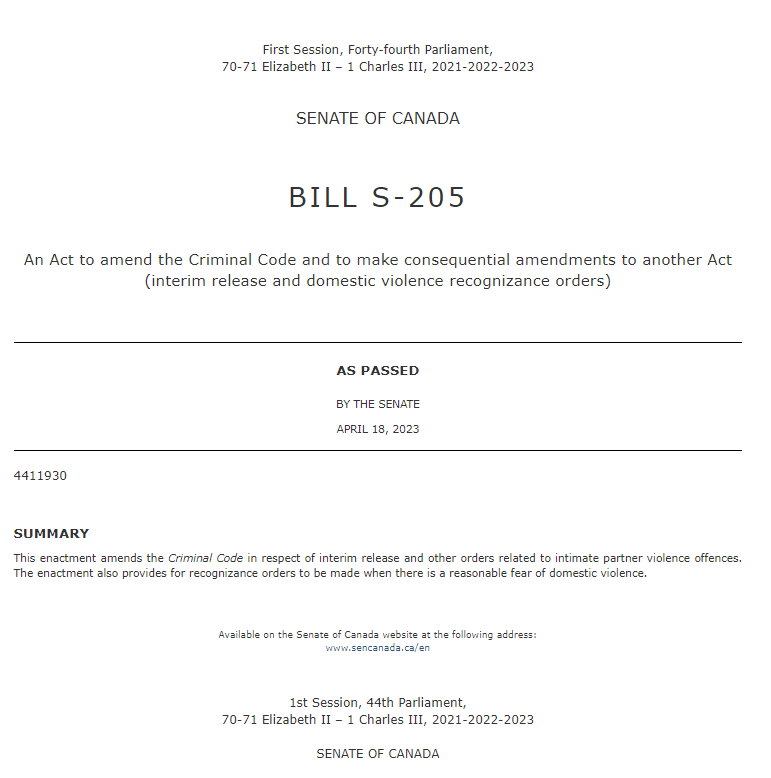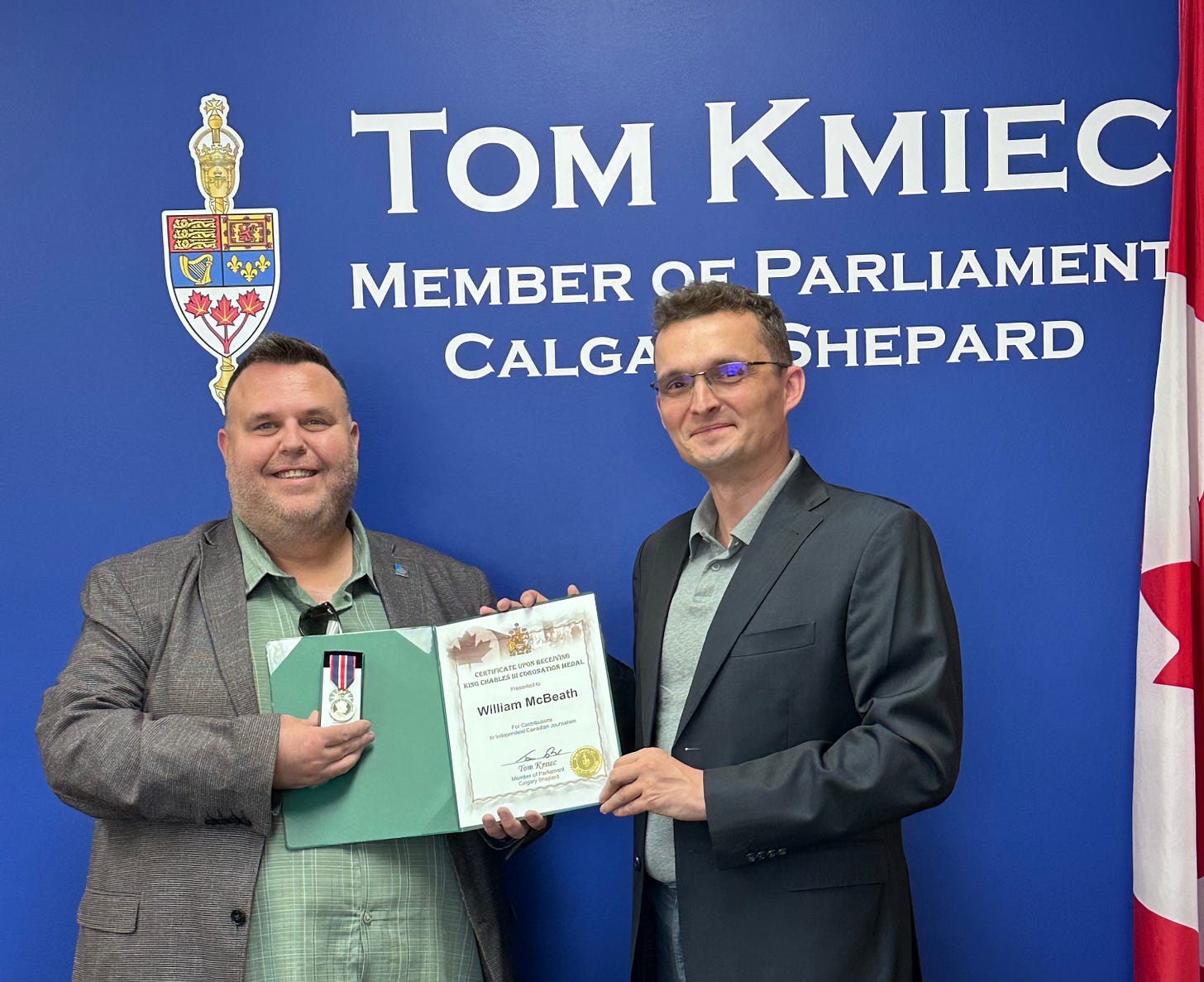GUEST COLUMN MP RYAN WILLIAMS: Liberals Fail to Defend Canada's Softwood Lumber Industry from the Americans
Plus, the Public School Boards Association of Alberta slams the NDP/Liberal Carbon Tax, the NDP and Bloc sellout Canadians, and conservatives pass legislation to protect women.
The following section is a guest column with MP Ryan Williams, the Conservative Shadow Minister for International Trade, Pan-Canadian Trade and Competition.
After nearly nine years of Liberal government leadership, Canada’s softwood lumber industry is in a more precarious position than ever, plagued by rising tariffs, trade mismanagement, and missed opportunities. The Liberal government has consistently failed to protect this crucial sector, which is vital not only to our economy but also to the livelihoods of 400,000 Canadians who depend on it. From British Columbia to Quebec, families and workers in forestry towns have felt the brunt of government negligence. What was once a thriving industry is now facing the consequences of both domestic policy failures and poor international trade relations.
At the heart of this issue is Canada’s ongoing trade dispute with the United States over softwood lumber. The long-standing dispute centers on U.S. claims that Canada unfairly subsidizes its lumber industry, resulting in anti-dumping and countervailing duties imposed on Canadian softwood exports. While softwood lumber has been a contentious issue for decades, the failure of this government to find a resolution and defend our interests has led to an escalation of tariffs and a growing economic burden on Canadian businesses. In the last nine years, we have seen tariffs increase from an average of 8.99% in 2017 to nearly 19% as of 2024. The consequences are stark: decreased exports, higher costs for American consumers, and reduced revenues for Canadian producers.
Despite the critical importance of this sector, the government has failed to advocate effectively for a fair deal. While trade negotiations with the U.S. have often been slow and complex, the Liberal government’s handling of these discussions has left much to be desired. Rather than prioritizing softwood lumber during key trade negotiations like the United States-Mexico-Canada Agreement (USMCA), the issue was sidelined, leaving Canada at a significant disadvantage. The Biden administration’s move to increase tariffs on Canadian softwood lumber is a clear sign that the U.S. feels emboldened to push back against Canada’s interests and a Prime Minister who has backed down, not only to Biden but Trump and Obama. It was Stephen Harper who made a deal with softwood lumber in 80 days, while nine years later, we are in this predicament.
But the blame doesn’t stop at our failure to secure a softwood deal. We must also consider the broader trade environment in which Canada operates. Over the last nine years, Canada has become increasingly isolated on the world stage, as we’ve failed to establish strong bilateral trade relationships. While we talk about diversifying our markets, little has been done in terms of action. Key markets such as Europe, Asia, and Latin America remain largely untapped, leaving Canada overly reliant on the United States for trade in softwood lumber and many other sectors. The opportunity to negotiate better terms with countries like Japan, Germany, or the U.K. has been missed, and the fault lies squarely on the current government’s lack of vision and poor leadership.
The economic consequences of this failure have been severe. Canadian softwood lumber companies have seen revenues shrink as export opportunities dwindle. The cost of doing business in Canada has also risen significantly. The carbon tax, which this government continues to double down on, has added an extra layer of financial burden to an already struggling industry. With the added costs of carbon taxes, tariffs, and a lack of market expansion, Canadian producers are left in an untenable position. It’s no wonder that many small- and medium-sized businesses in the forestry sector are either shutting down or scaling back operations.
But the impact extends beyond the financial. Entire communities built around forestry are suffering as job opportunities disappear. In many rural areas of Canada, softwood lumber was not only a source of income but the foundation of local economies. As mills close and production slows, families are left without the means to support themselves, leading to outmigration and the slow decay of these towns. The government’s failure to provide a sustainable, long-term solution to the softwood lumber issue is not just a failure of trade policy—it’s a failure of leadership that has left countless Canadians in the lurch.
One of the most glaring failures over the last nine years has been the lack of innovation and investment in our forestry sector. While other countries have advanced their forestry technologies and made strides in sustainable practices, Canada has lagged behind. Instead of providing the industry with the tools to modernize and compete on a global scale, the government has focused on short-term band-aid solutions, offering temporary relief without addressing the root of the problem. We’ve seen no serious investment in R&D or any efforts to make Canadian lumber a more competitive and sustainable product on the global market.
So, where do we go from here? First and foremost, we need a government that will fight for Canadian industries—starting with securing a fair deal on softwood lumber with the United States. Trade negotiations need to be at the top of the agenda, not an afterthought, and we must hold the U.S. accountable for the punitive tariffs they have imposed on Canadian exports. But, we also need to think beyond the U.S. and actively pursue new markets for Canadian softwood lumber. This government’s failure to engage with key international markets has cost us dearly, and we cannot afford to let these opportunities slip through our fingers.
Furthermore, we need a long-term plan to invest in the future of our forestry sector. That means supporting innovation, incentivizing sustainable practices, and helping Canadian businesses adapt to the changing global market. It also means reassessing domestic policies like the carbon tax, which has disproportionately hurt industries like softwood lumber. If we’re serious about competing globally, we need to give our businesses the tools to succeed, not burden them with additional costs.
In conclusion, after nine years of failed leadership, it’s time to bring common sense back to Canada’s softwood lumber industry. We need policies that prioritize the protection of Canadian jobs, the promotion of Canadian exports, and the future of Canadian industries. Our softwood lumber sector deserves better, and with the right leadership, we can once again become a global leader in forestry, creating opportunities for businesses, workers, and communities across the country. The time for action is now before it’s too late.
Watch Conservative MP Ryan Williams address the issue in Parliament.
The carbon tax is affecting every aspect of life for Canadians, especially in my riding of Calgary Shepard. Every time I talk to voters, I hear countless stories of those who are struggling to afford basic necessities such as groceries, rent and housing payments, and filling up with gas. I am not only hearing this frustration from individuals but from multiple businesses, non-profits, and from some associations that you might not have expected to be vocal about this issue. This August, I received a letter from the Public School Boards Association of Alberta, who delivered a scathing criticism of the NDP/Liberal government’s 23 percent carbon tax raise for putting a strain on their school budgets.
Here is the letter from the Public School Boards Association of Alberta:
When our schools can’t prioritize education because of the burdens of the carbon tax, it’s clear that Canadians need a carbon tax election.
This letter was primarily directed toward the radical Liberal Minister of Environment, and circulated amongst every Alberta Member of Parliament, including the province’s NDP MPs and Liberal MPs. Why haven’t the Minister and the other Liberal and NDP MPs said anything about this?
I read the president’s letter into the official record at the parliamentary immigration committee on Monday and called out the NDP-Liberals for their continued support for a carbon tax that is taking money out of school budgets. While the carbon tax is an issue that is rarely discussed at the parliamentary immigration committee, I believed it was necessary to talk about this issue because I represent you and this is what matters to you. The Liberal, NDP, and even the Bloc Quebecois MPs of this committee have tried to ignore the struggles of Canadians for far too long, and it was time for them to hear your voices.
Working for you at this parliamentary committee.
The NDP and the Bloc voted to keep the costly coalition alive and for the Liberal government to remain in power on Wednesday. As I wrote in last week’s edition of Resuming Debate, Conservatives put forward a simple 12 word motion that the Members of Parliament had lost confidence in the prime minister and the Liberal government. If you recall, the NDP stated earlier this month they were “tearing apart” their coalition agreement with the Liberals, despite having sold out Canadians for the past two years by being the junior partners in the coalition. Despite this theatrical act, the NDP voted to keep the prime minister and his Liberal government in power.
The result of this vote means the Liberals, NDP, and Bloc will continue to tax your food, double your housing costs, and unleash crime and chaos. Their votes also indicate that they are afraid to face Canadians in an election because they know they will hold them accountable for the damage they have done. If a federal election were to be held today, all three of these parties would lose their seats in Parliament, which is why they are desperate to hang on to their power.
The NDP and Bloc’s sellout of Canadians will not deter Conservatives from fighting until Canadians can vote for lower prices in a carbon tax election. I have you heard you clearly in your emails, phone calls and while canvassing in Calgary Shepard that you want a change of government and are ready to pass judgment on the performance of this Liberal government. Common sense conservatives on Parliament Hill are going to continue to push non-confidence motions to kick off a federal election where every parliamentarian will have to earn your votes.
Not all votes on Wednesday were bad, however, as Parliament voted to unanimously pass Bill S-205, which will provide our justice system with more options to protect women escaping intimate partner violence. The content of this legislation require that before an individual charged with threatening or committing violence against an intimate partner is released, the judge must ask the prosecutor whether the intimate partner of the accused has been consulted about their safety and security needs. While the Liberals and NDP unfortunately watered down the original wording of the law, it is an important step toward giving women more options to protect themselves from facing further risks from domestic violence.
However, much more work remains to eliminate intimate partner violence in Canada. We need to end the revolving door policies of this NDP-Liberal government, which essentially allow repeat offenders to commit more crimes. A necessary step toward this would be to toughen our bail laws that were radically altered by the NDP-Liberals over the past nine years. The consequences have been more chaos on our streets and a significant uptick in violent crimes, including domestic violence.
It was conservatives who took the initiative to get this law through Parliament three years after it was introduced. This is an example of common sense conservative ideas and initiatives where we worked with other political parties to pass a significant legislative change.
This week, I presented the King Charles III’s Coronation Medal to William McBeath, Chief Operating Officer and Managing Director of True North. This recognition celebrates William’s outstanding contributions to independent journalism in Canada. Through his dedication and leadership at True North, he has played a vital role in upholding the values of free speech and accountability —principles that are essential to our democracy.








